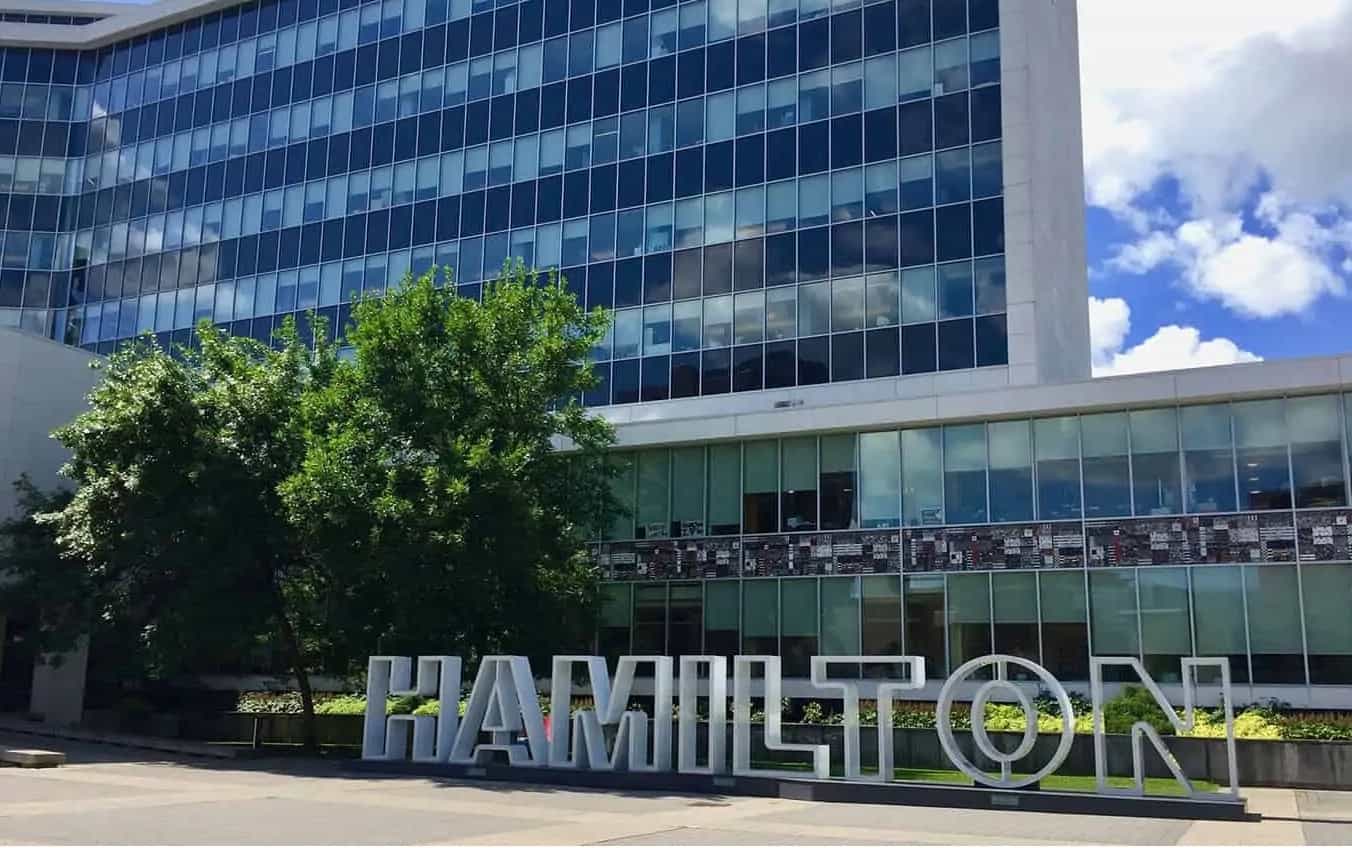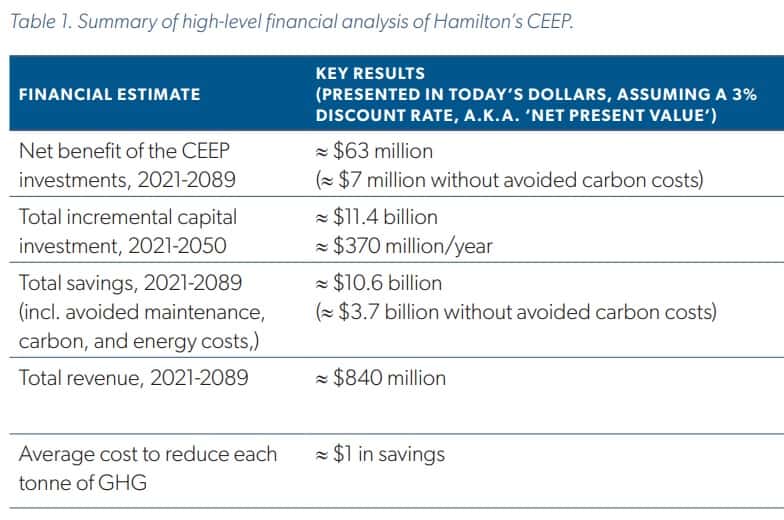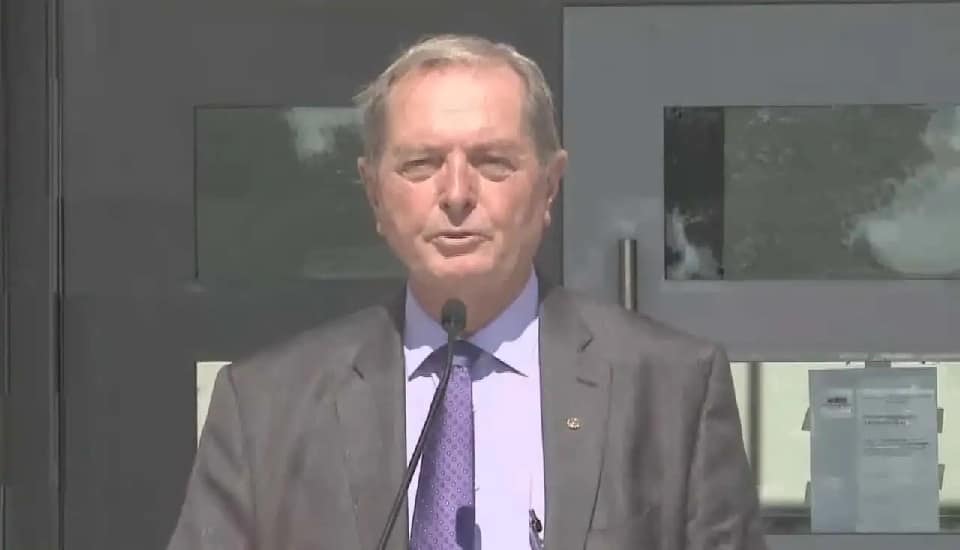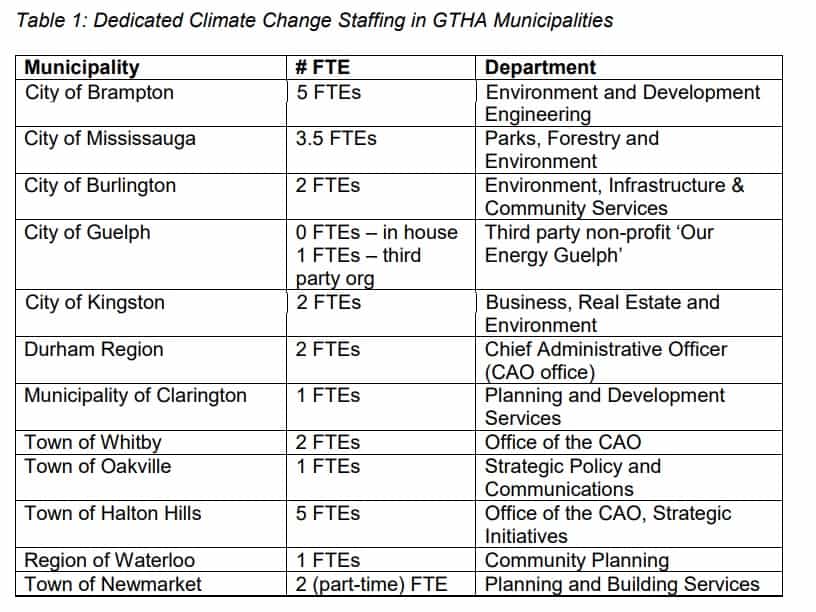Hamilton adopts a Climate Action Strategy with an $11.4B price tag over 3 decades
Published August 8, 2022 at 6:28 pm

Some elected councillors and community activists are questioning whether the city’s long-awaited Climate Action Strategy is bold enough to protect residents.
Councillors and Mayor Fred Eisenberger voted 12-1 during a general issues committee meeting on Monday to adapt the climate strategy, whose costs will be built into the City of Hamilton’s annual budget. Its two main elements are known as CEEP (community energy and emissions plan) and CCIAP (climate change impact adaptation plan). The move comes after consultations with numerous community groups earlier this summer.
Three and a half years ago, the same council declared that Hamilton is in a climate emergency, and directed staff to create a response.
Residents of Hamilton are experiencing more frequent extreme heat events and prolonged dry weather spans that affect people’s health outcomes. Climate change, as the CCIAP report notes, also sticks Hamilton taxpayers with “costly infrastructure repairs, increasing escarpment erosion and damage to escarpment access roads,” surmising that it is “equally imperative to adapt to and prepare for those climate impacts we can no longer avoid.”
Indigenous-led, social, environmental, and equity-seeking groups were consulted on the plan. Trevor Imhoff, senior project manager with the city’s air quality and climate change team, said the CEEP will need an $11.4-billion investment from roughly now until 2050, from all three levels of government.
That works out to about $370 million annually. Hamilton’s annual budget is currently around $2 billion.
“We don’t have a choice,” Ward 1 Coun. Maureen Wilson said. “Inaction will cost us more money.
“It is time that it is the greatest devil in this detail, because of how heat stays in the body and affects the body, especially as you age,” Wilson added. “It is a growing concern for health practitioners across the country. I would just like to underscore to our staff the urgency of responding to this.”

Cost of Hamilton’s community energy and emissions plan. (City of Hamilton)
A recent report by the Intact Centre on Climate Adaptation, in partnership with the University of Waterloo, says that Hamilton faces the second-highest risk of extreme heat among cities in Canada. Monday’s discussion happened while the city was in the third consecutive day of a heat event.
“Prolonged heatwaves will be part of future, and that’s why it is important to plan ahead,” Thomas Cooper, a representive of the Hamilton Roundtable on Poverty Reduction, said in his delegation at the meeting.
“It is reckless to believe that Southern Ontario will be spared. According to tracking plotted by NASA (the North American Space Agency), heat events that used to be once in 20 years will be happening every two or three years. As we speak, it is hotter in St. Petersburg, Russia than in St. Petersburg, Florida.
“People experiencing poverty and social exclusion are hit hardest,” Cooper added. “Particularly those living in inadequate housing or having inadequate incomes. In extreme heat, highrises become heat traps. Right now, t’s rare to find landlords who invest in heat mitigation. But we are seeing (U.S.) cities such as Dallas and Phoenix pass laws that require landlords to keep buildings below 27 Celsius.”
At the same time, many families worry about bearing the cost of creating a greener society. Under questioning from Ward 6 Coun. Tom Jackson, Imhoff said that by 2050, the average Hamilton household would have $2,873 less in heating and hydro costs than it does here in 2022.
He also shared the city has made progress in talks with the Federation of Canadian Municipalities about creating a HERO (Home Energy Retrofit Opportunity) program that would allow homeowners to take out loans from a credit union to finance green renos. Environment Hamilton, which delegated in support of the climate strategy in Monday, suggested the HERO program last year.
“It’s our intent to prioritize those households that are on the verge of energy poverty, as well as older homes in order to maximum Greenhouse Gas Reduction,” Imhoff said.
Woohoo! Major milestone for #HamOnt in response to the #ClimateEmergency! Congratulations to all and THANK YOU to all the community members across our city who have been pushing Council to get us to this point all term! https://t.co/ed1vrb99Kd
— Environment Hamilton (@EnvHamilton) August 8, 2022
‘Act boldly’
Longtime local politics watchdog Don McLean, the co-founder of Citizens at City Hall, suggested that methods to engage Hamilton residents on climate action has been overlooked.
“The strategy we’re delegating on today, it has some flaws and fuzzy thinking, but it’s important to take climate action,” McLean said. “But we face a situation in which increasing numbers of people don’t listen to politicians, as we witnessed with the record low turnout (43 per cent) in our recent provincial election (on June 2). They don’t trust that politicians in government will protect them, which is the responsibility of government.
“We need to get their attention, and act boldly,” McLean added. “That need is really critical.”
In his delegation, McLean suggested that the city should commit $10 million per year on ecological and environmental rehabilitation, and make local transit free. That would be roughly “double” what the Hamilton Conservation Authority (HCA) did this spring when it acquired 50 acres of land in order to reclaim wetlands. That move is intended to cut erosion and flooding in the Stoney Creek area.
“Let’s take this example of what you (through the HCA) did and build on it,” McLean stated, who also contended that the savings to a family from improved, free transit (it currently costs $2.55 a ride for PRESTO Card users) would surpass household savings. “It’s time we made transit free and ensure no one waits more than 15 minutes for a bus. That helps.
“We need to act as a government and show that as a government, we care about people,” McLean said. “Making transit free would cut about $5,000 a year (in expenses) for a family of four with two high school-aged children.”
Although the conservation authority was cited as a good example, HCA chair and Ward 12 Coun. Lloyd Ferguson, voted against the climate adaptation strategy.
Ferguson, who is retiring after representing the affluent Ancaster ward for 16 years, balked at an outgoing council voting to hiring a manager, at a salary of $215,000, in order to head up the climate change office. He suggested that be put off until the new council is seated in December.
“That’s $215,000 a year for the rest of our lifetimes,” Ferguson said. “It’s kind of unconscionable to add this kind of budget impact for the next council. I’m not going to burden this future council.”
At the GIC last week, Ferguson also got an amendment passed to exempt Ward 12 from a citywide “gentle density” plan meant to allow for more the building of more housing options. It was approved 5-2, but would need full-council ratification this Friday.

Ward 12 Coun. Lloyd Ferguson. (CHCH / YouTube)
That $215,000 salary is on par with the compensation of city managers and police superintendents, when applying inflation to last year’s Ontario Sunshine List, the public record of government employees with six-figure salaries. In In 2021, for instance, a few superintendents with Hamilton Police made more than $200,000. Mayor Eisenberger, chief librarian Paul Takala and chief planner Steve Robichaud all had salaries in the $193,000 range.
The salary is well below that of Chief Medical Officer of Health Dr. Elizabeth Richardson ($373,000 last year) and Police Chief Frank Bergen ($267,000).
“We are already burdening our children and grandchildren,” Wilson said when she spoke after Ferguson’s comments.
The climate change office will be part of the city’s planning and economic development department.
Several cities across the Lake Ontario watershed have hired staff who focus solely on climate change planning. Brampton has five such employees, and Mississauga has 3.5 such positions filled.

Hamilton will also create a climate change advisory council, with an emphasis on drawing from a cross-section of Hamilton residents. With the meeting being held during business hours, most of the live delegators were middle-aged or older adults.
While the plan requires ratification at the next council meeting, the majority of elected representatives have already voted for it. Eisenberger, Wilson, Jackson and fellows Couns. Jason Farr (Ward 2), Nrinder Nann (3), Russ Powers (5), Esther Pauls (7), John-Paul Danko (8), Brad Clark (9), Maria Pearson (11), Arlene VanderBeek (13) and Judi Partridge (15) voted in favour of the climate adaptation strategy.
Absent Couns. Sam Merulla (4) and Brenda Johnson (10) are not running for re-election. Ward 14 Coun. Terry Whitehead is on a medical leave.
insauga's Editorial Standards and Policies advertising





